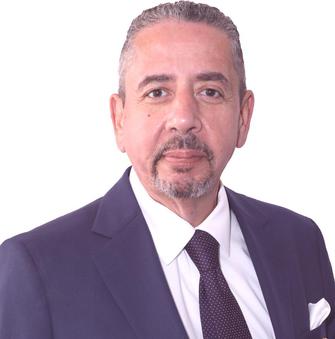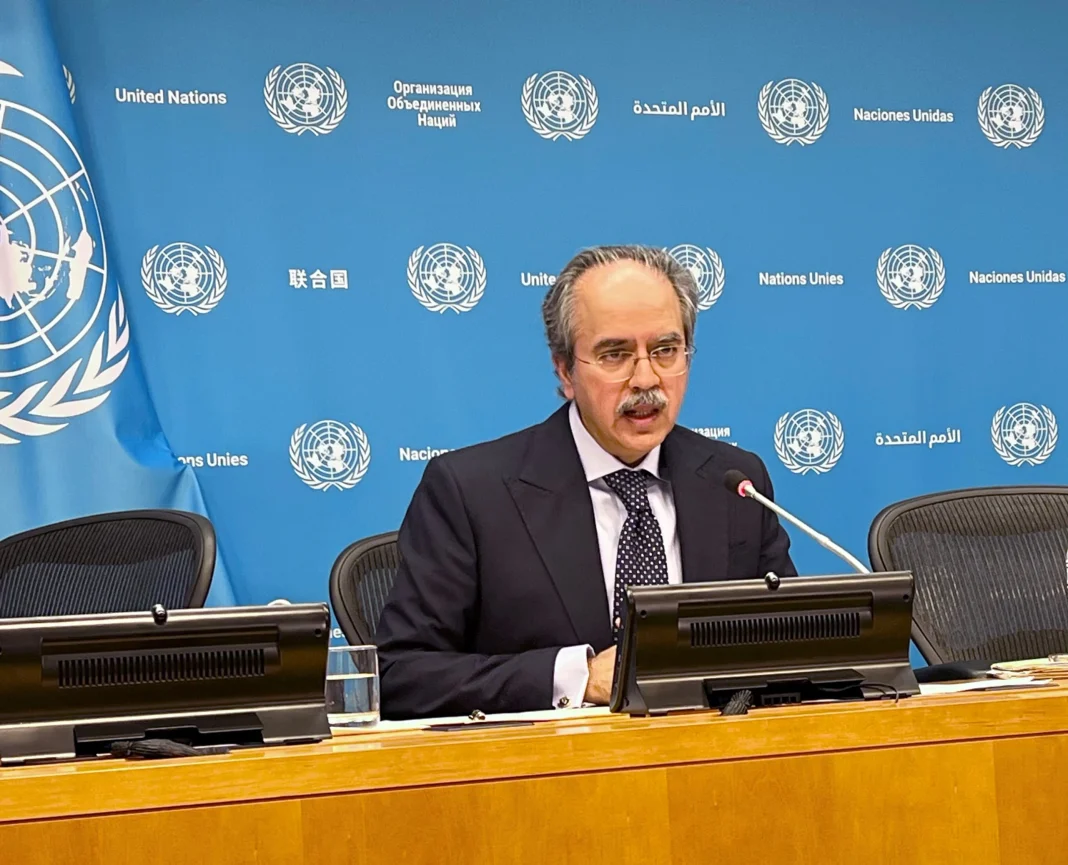By: Ahmed Fathi
United Nations, New York – Following the April 22, 2025, terrorist attack in Indian controlled Kashmir that left dozens dead and rekindled concerns of a more general regional confrontation, the delicate peace between India and Pakistan has come under increasing strain. Accusations, military signaling, diplomatic entrenchment, and world unease have all too often followed in the days since the attack. But this time the path to de-escalation is far less obvious, the responses are more rigid, and the stakes are higher.

Both countries are following quite different strategies at the United Nations. Ambassador Asim Iftikhar, Pakistan’s Permanent Representative to the United Nations, held a press conference on Friday, May 2nd to state Islamabad’s stance and demand immediate world attention. He underlined Pakistan’s denunciation of the attack, blamed what he called India’s “repressive policies” in Kashmir, and cautioned that silence among the world community going forward could cause more instability in the area.
Ambassador Iftikhar responded to ATN News’s question (from 24:05 min) about Secretary-General António Guterres’s recent phone call with Prime Minister Shehbaz Sharif by stating Pakistan welcomed the offer to use his good offices for mediation and preventive diplomacy. Islamabad had formally invited Mr. Guterres to the area, he said—a rare overture in a diplomatic cold environment. “Pakistan feels the United Nations is absolutely essential for preserving world peace and security, especially in long-standing conflicts like Kashmir,” the ambassador said.
But Ambassador Iftikhar turned away direct inquiries (from 51:42 min) regarding Pakistan’s nuclear policy, more especially on first use of nuclear weapons. “We have a known and constant posture. The relevant information is freely available, he remarked, avoiding a strong commitment to either escalation or limitation. This uncertainty has not helped to ease anxiety, particularly in light of Pakistan’s ballistic missile test-launch the very next day—an action India judged highly provocative.
Later on, UN Spokesperson Stéphane Dujarric confirmed that India declined while Pakistan accepted the mediation offer from the Secretary-General. Dujarric states that Mr. Guterres has also conferred with India’s External Affairs Minister Subrahmanyam Jaishankar, but not with Prime Minister Narendra Modi, so stressing India’s careful distance from global involvement on this issue. India’s official position is still the same: all issues involving Kashmir should be resolved bilaterally in line with the Simla Agreement of 1972 without involving third parties.
Although this posture is in line with historical diplomacy of India, it begs awkward issues about its goals on the international scene. India’s denial of the Secretary-General’s mediation function at such a pivotal point seems contradictory as it keeps running its campaign to be a permanent member of the UN Security Council. How can a state try to run the very institution it also marginalizes?
The ballistic missile test by Pakistan, whether meant as a show of might or a deterrent, intensifies a crisis already rife with nationalistic fervor and media-fueled indignation on both sides. While Pakistani sources maintain it was a “routine exercise” scheduled in advance, India’s defense officials have labeled it a “calculated provocation.” Though intention is different, the timing accentuates the danger.
The actual risk comes from miscalculation. Given both countries having nuclear weapons and command structures sensitive to quick changes, the margin for error is shockingly narrow. This is a flashpoint between two heavily armed countries with unresolved historical trauma, conflicting regional ambitions, and a combined population of almost two billion people, not only a border dispute.
Still, given the seriousness of the matter, worldwide reactions have been subdued. Driven by wars elsewhere, Western nations have sent broad calls for moderation. Key regional actor and ally of Pakistan, China has urged communication but has not supported UN action. Russia has followed a similar wary path. Echoing India’s language, the United States has reaffirmed support for bilateral engagement, albeit it has not endorsed any mediation specifically.
This diplomatic deadlock exposes a more fundamental issue: the decline of multilateralism at a moment most needed. Conceived to prevent exactly such conflicts, the United Nations finds itself progressively marginalized—first by states that reject its authority, then by a global order broken by conflicting interests.
Should the world community fail to exercise a stabilizing influence, the consequences could not stay limited to South Asia. Disturbance in the area could affect energy corridors, cause shocks across the worldwide supply chain, and aggravate tensions in other geopolitical areas. Regional conflict affects the world today connectedly.
What is required now goes beyond mere symbolic diplomacy. The Security Council has to act; it cannot only pay attention. The office of the Secretary-General has to keep interacting despite opposition. And both India and Pakistan have to be reminded—by both friends and enemies—that the cost of conflict in the nuclear era is impossible to measure.
Time is not on our side. Should diplomacy fall short in forward movement.
INPS Japan/ ATN
Original Link: https://www.amerinews.tv/posts/india-and-pakistan-un-mediation-rebuffed-as-nuclear-neighbors-square-off




